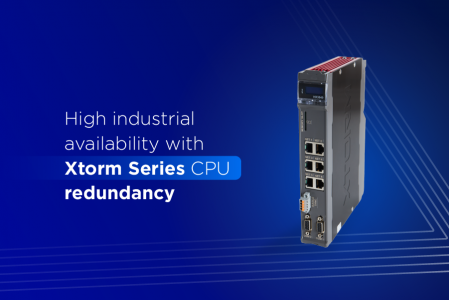
What is a datalogger and why should you use it in your application?
Technology has been increasingly transforming industry habits, especially with regard to the production sector. The competitiveness of organizations is directly linked to the optimization of production processes and control over every aspect of this chain. To provide a consistent environment, operating in an aligned and 100% functional way, it is extremely important to have an accurate monitoring and data collection routine, which allows decision makers to have real information about the state of the plant and to make appropriate corrections in their processes.
This data collection can be performed through different types of instruments that are called dataloggers.
What is a datalogger and what is it for
Datalogger is an electronic device that monitors and records data in real time over time or in relation to a given geographical position. Generally used in long-term measurement applications, the equipment makes use of instruments to collect information on field variables, such as voltage, temperature, current, among others. This information makes possible the determination of a variable’s behavior over time, a resource used in the industry to make a historical assessment of the evolution of a specific aspect of the production process.
Indicated for different processes that demand some kind of automation, a datalogger can be used in meteorological applications, to measure the level of rain and analyze atmospheric parameters; laboratories, as well as keeping the temperature and humidity of the samples stable; in the process industry, recording machine data for diagnostic purposes or to identify areas of energy savings; among many other purposes, such as monitoring of:
- Temperature and humidity levels in manufacturing environments, storage facilities, hospitals and other public facilities;
- HVAC conditions in industrial and commercial installations
- Cultivation conditions in greenhouses and farms, as well as food temperature at all stages of processing and transportation;
- Environmental conditions of pharmaceutical products during manufacture and storage.
For simpler applications that use only one or two monitoring channels, it is common to use dataloggers with a low level of data processing and storage. However, for more complex applications, with a large volume of control variables and high demand for accuracy and availability, it is increasingly common to use PLCs to perform this type of task.
How to use Nexto Xpress as a DataLogger
Historically, data loggers have avoided the most common communication standards in the automation industry, such as Modbus TCP/IP and CANopen. However, this is changing, and the adoption of these interfaces is increasing more and more. With support for a wide variety of communication protocols, fast data processing and an excellent cost-effectiveness for the small and medium-size applications market, the compact PLCs of Nexto Xpress solution are prepared to meet this growing market demand.
The products of the Xpress family, as well as the other programmable controllers of the Nexto Series, can act as dataloggers through a function block created by our team of specialists. The feature enables the user to create their own data records and write to log files in the internal memory of the CPU or on a flash stick attached to the USB interface of Nexto Xpress.
The functionality is not embedded natively in Altus controllers, but can be configured in an extremely simple way through MasterTool IEC XE, Nexto PLC programming software.




